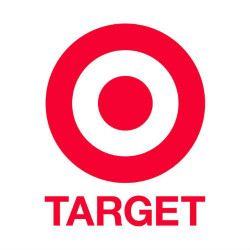Top Class Actions’s website and social media posts use affiliate links. If you make a purchase using such links, we may receive a commission, but it will not result in any additional charges to you. Please review our Affiliate Link Disclosure for more information.

Plaintiff James Walters claims that Target deceptively presents its RedCard payment method as an analog to traditional debit cards, when in fact using the card exposes consumers to vastly more expensive penalties and fewer legal protections.
According to the Target class action lawsuit, Target’s RedCard is a house-brand payment method that the retailer offers customers.
Using a RedCard to pay for a Target purchase initiates an electronic transfer of funds from the customer’s associated bank account. In exchange for using the RedCard, Target offers customers a five percent discount on all Target purchases made with the card.
Walters says that Target exploits consumers’ ideas of how debit cards work to get them to use the Target RedCard – which Walters says doesn’t work like traditional debit card at all.
According to the class action lawsuit, Target tells customers that funds for purchases made with a RedCard are immediately and directly withdrawn from the customer’s checking account.
Target also requires customers to pick a unique Personal Identification Number for use with the card. Walters argues that these aspects of the RedCard deceptively encourage customers to think it works like a debit card.
The problem, according to Walters, is that RedCard transactions don’t work like debit card transactions at all. He says that purchases made with a RedCard function are processed over the Automated Clearing House network.
These ACH transactions function more like electronic checks, Walters says. They do not immediately draw funds from the payer’s bank account, causing a delay that he says consumers aren’t expecting.
In addition to the delay inherent in ACH transactions, Walters says Target intentionally delays processing RedCard transactions.
He alleges that to save money on processing fees, Target submits RedCard transactions to the ACH network in massive batches. This batch processing can add several days to the time it takes a single transaction to post to the customer’s account, Walters claims.
This delay increases the chance that a customer’s checking account may become overdrawn by the time the Target transaction posts, Walters says.
Like banks, Target charges its RedCard customers a fee if the transaction is refused. But unlike bank fees, which are regulated by federal law, these Returned Payment Fees are unrestricted.
Walters claims that a single declined RedCard transaction can rack up compounded RPF charges of $100 or more.
In addition to the RPFs, Walters says the customer’s bank may also charge an NSF fee for the declined transaction. Walters adds that while Target’s card agreement warns customers about the possibility of being assessed “overdraft fees,” it makes no mention of the danger of NSF fees.
Walters quotes several customer complaints from Internet forums showing that many who signed-up for and used the RedCard had the mistaken impression – allegedly based on Target’s representations – that the card would work just like a debit card.
Some of these customers say this alleged misrepresentation resulted in their being hit with RPF charges they weren’t expecting.
If certified by the Court, Walters’s proposed Class will include all U.S. consumers who incurred RPF charges by using their Target RedCard within the applicable statute of limitations period.
The plaintiff is asking the court to award damages and restitution of all charges Target has assessed its customers as a result of its alleged deceptive business practices, plus costs and attorneys’ fees.
Walters is represented by attorneys Jeffrey Kaliel of Tycko & Zavareei LLP; and Jeffrey Ostrow and Scott Edelsberg of Kopelowitz Ostrow Ferguson Weiselberg Gilbert.
The Target RedCard Class Action Lawsuit is James Walters v. Target Corp., Case No. 16-cv-1678, in the U.S. District Court for the Southern District of California.
UPDATE: On June 19, 2019, Target debit card holders reached a $8.2 million class action settlement which would end claims that Target deceptively markets its store debit card.
ATTORNEY ADVERTISING
Top Class Actions is a Proud Member of the American Bar Association
LEGAL INFORMATION IS NOT LEGAL ADVICE
Top Class Actions Legal Statement
©2008 – 2024 Top Class Actions® LLC
Various Trademarks held by their respective owners
This website is not intended for viewing or usage by European Union citizens.















100 thoughts onTarget Class Action Says RedCard is Deceptively Marketed
Don’t blame Target if you don’t have the money in your account due to delay of Target withdrawing money owed to them. It is your responsibility to ensure money is there!! You need to learn how to manage your banking account and not put the blame on others. Don’t be a deadbeat!!!
Also, if you can’t seen to manage the card, cancel it! You are not being held hostage to continue using it.
*seem no seen
So, I had a Target Red Card, but I thought it was a credit card… didn’t know until now about the debit-card scam. Shame on them. I no longer have the card though. Had it when I lived in Oklahoma. I live in the Colorado Rockies now… 100+ miles from any Target store.
I have a target red card I want to know how to be part of the lawsuit
This happened to me as well for some reason but I never had an account overdrawn I just got 100.00 charge letter in the mail
I have a red card and use it all the time to get the 5% off and I know I spent the money so and it takes target a few days to withdrawal it. I don’t feel it’s targets fault it would my fault for not paying attention to my spending and my account.
Happened to me so many times that I got over 6 overdraft fees from target THEN they cancelled my red card due to to many overdrafts/ ironic – eh?
If u are stupid enuff to let this happen u deserve it. Are u not recording somewhere the transactions u make with Target and how much they are for? If so, u would KNOW not to spend that amount from your account. Very simple if u use your brain. Just because they dont draw it out the instant u purchase something doesnt mean they will not eventually. U better believe every single time I write a check or pay with any of my debit cards I deduct that amt. from my acct. then and there so I wont think I have more than I actually do in my acct.
Want to be a part of this
Not really when you have enough in the bank and the bank decides to pay a larger transaction first then the small ones resulting in an overdraft. Once they take out fees then there is nothing left to pay small transactions and you get more fees. If you dont like the lawsuit then dont participate!
Umm, you should still have enough money in your account to pay all your transcripts even after paying the larger transactions first! If you don’t do not buy anything!!! Simple!!! Smh
So I can purchase the most expensive television with no worries that the money is going to come out of my account for days so right after buying the television so I go to my bank and close my account and withdraw all my money now I have a brand new TV and all my money whose fault is that
Targets…and yes, you could do that…..but then you would be on the database of people who have done that and you would have a hard time with opening any new accounts for a long time and it would negatively impact your credit…not sure thats the smartest plan, but great criminal thinking :-)
Please, keep me informed. i would like to be a part of the Target red Card lawsuit.